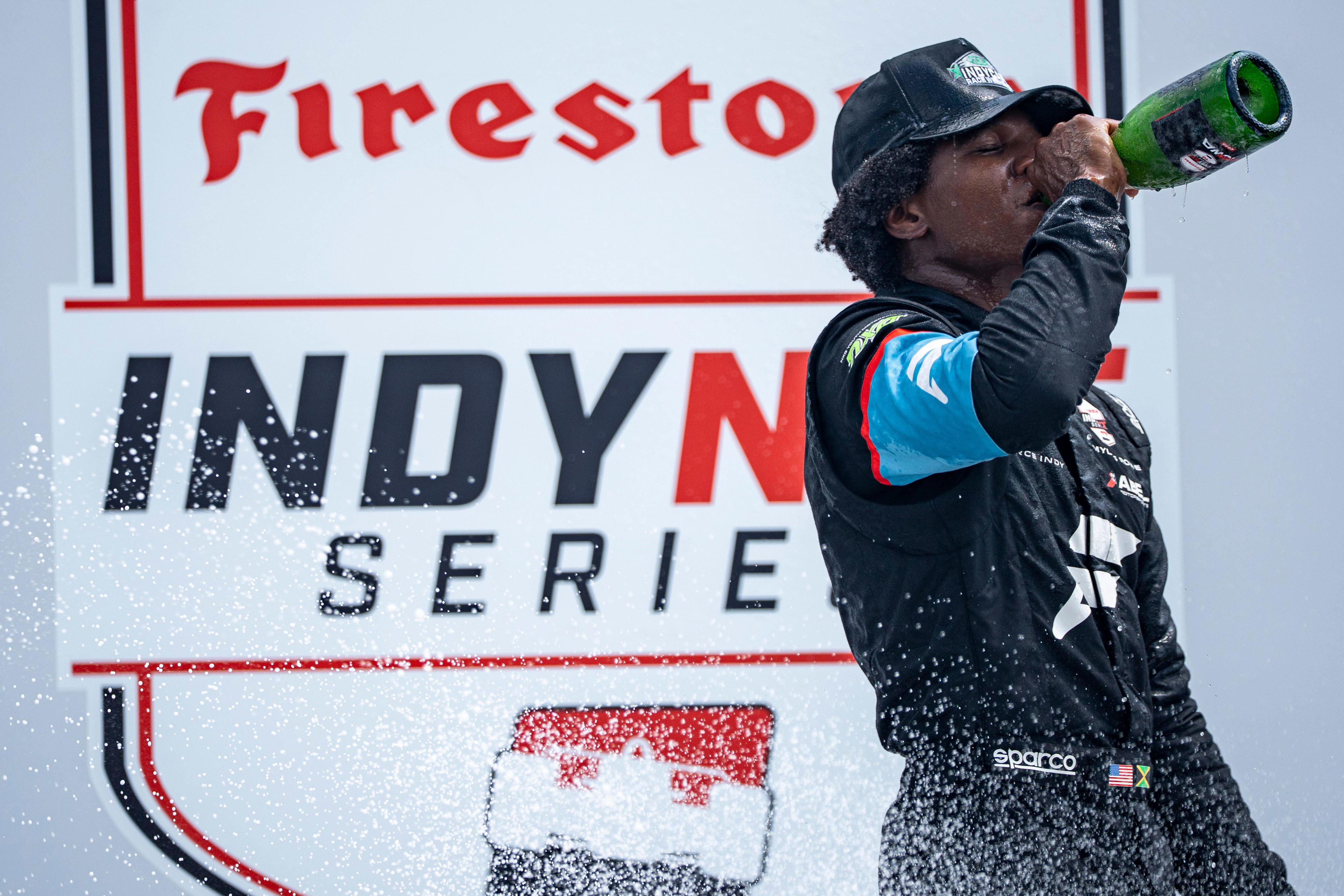Myles Rowe Makes History as First Black Driver to Win IndyNXT at Iowa Speedway

A Historic Victory at Iowa Speedway
Myles Rowe made history on July 12 when he crossed the finish line in victory lane at Iowa Speedway. This win marked a significant milestone in his journey toward IndyCar and solidified his place as a trailblazer in motorsports.
Rowe, the only Black driver competing in IndyCar or its developmental series IndyNXT, became the first Black driver to win an IndyCar or NASCAR-sanctioned race at Iowa Speedway. Additionally, he is the first Black driver to claim victory in an IndyNXT race. His achievement highlights a growing movement toward diversity and inclusion within the sport.
A Legacy of Representation
Rowe's success comes with a deep sense of responsibility. He emphasized the importance of representation, especially for young drivers who may not see themselves in the racing world. "I'm super proud to be able to represent and be winning now and be up front," he said. "It's super crucial to be able to see somebody that looks like you doing well, someone to look up to, especially when you're younger."
This sentiment echoes the legacy of Willy T. Ribbs, who was the first Black driver to compete in the Indianapolis 500 in 1991. Rowe's 2021 victory in the USF Pro 2000 series, which is sanctioned by IndyCar, was the first win by a Black driver in an IndyCar-sanctioned event. His accomplishments have placed him at the center of IndyCar's Race for Equality & Change program, launched in 2020 to promote diversity among drivers.
Overcoming Challenges
The path to victory was not without its challenges. Before the race, Rowe faced a tornado warning on July 11, which forced the cancellation of practice sessions. While he joked about the experience, it added an unusual element to the weekend. "The first time I had a tornado drill in racing," he said. "So that was quite fun. But it will definitely be memorable for multiple reasons."
Despite the weather disruptions, Rowe remained focused. He passed pole sitter Dennis Hauger between turns three and four during the final stages of the race. The move came on the outside with around 10 laps remaining, showcasing his skill and determination.
Strategic Racing
In practice, Rowe had been experimenting with high-line running, a technique that involves driving along the outer edge of the track. "In practice we were doing a good bit of high-line running," he explained. "That was actually working. The question was, was it going to work in the race. It was pretty tough doing that, but I knew once we slowed down to minimum speeds that it may be a little bit more feasible."
Hauger, who started on pole, acknowledged that Rowe's strategy paid off. "I was able to stay really close the whole race," he said. "Once we sort of roughed up a bit in the second half of the race, he was able to get runs."
A Proving Ground for Prospects
Iowa Speedway has long served as a testing ground for future stars in both IndyCar and NASCAR. Brad Keselowski, for example, won the 2009 Xfinity Series race at the track, which was a significant moment in his career. He later went on to win the 2012 NASCAR Cup Series championship. Keselowski described the 2009 victory as one of the highlights of his career, calling it a defining moment.
Now, Rowe is looking ahead to the next chapter in his career. His historic win at Iowa Speedway has reinforced his aspirations to compete in IndyCar. "I'm looking for more," he said. "Racing drivers, we're never satisfied. I just want more of this. That's what I'll be doing and chasing."
The Road Ahead
As Rowe continues his journey, his achievements serve as an inspiration to others. His success not only marks a personal milestone but also contributes to a broader conversation about diversity and opportunity in motorsports. With each race, he adds to a legacy that extends beyond the track, paving the way for future generations of drivers.



Komentar
Posting Komentar